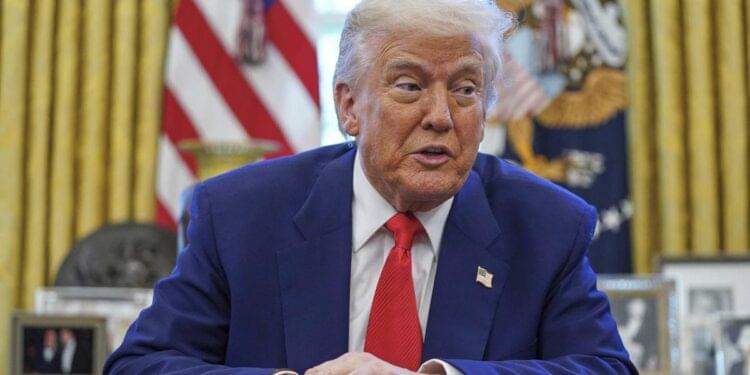On Monday, May 26, 2025, global financial markets saw significant volatility after a surprise decision by U.S. President Donald Trump to delay the implementation of a 50% tariff on European Union (EU) goods. Originally scheduled to begin on June 1, the tariffs have now been postponed to July 9, following diplomatic talks with European Commission President Ursula von der Leyen. This development sparked both optimism and caution in markets around the world, highlighting the ongoing complexities of international trade relations and economic diplomacy.
Global Market Reactions: A Snapshot
US Futures Rise on Trade Optimism
U.S. futures responded positively to the announcement, reflecting investor hopes that the delay could open the door for more constructive trade negotiations between the U.S. and the EU.
- S&P 500 Futures jumped by 1%, signaling renewed investor confidence.
- Dow Jones Industrial Average Futures increased by 0.8%, indicating broad market optimism.
The market’s reaction suggests that many investors view the delay not just as a pause, but as a possible turning point in transatlantic trade discussions. With tensions having escalated over the past few months, this move is perceived as a strategic retreat that could allow room for diplomacy.
Mixed Performance in Asian Markets
Asian markets showed varied responses to the U.S. decision. While some indices climbed on the prospect of easing global trade tensions, others declined, reflecting regional concerns and local factors:
- Japan’s Nikkei 225 rose 0.7% to close at 37,427.48, boosted by gains in technology and export-oriented sectors.
- South Korea’s Kospi advanced 1.2% to 2,622.07, benefiting from investor optimism and a stable won.
- Hong Kong’s Hang Seng Index declined 1% to 23,370.94, driven by profit-taking and ongoing concerns over China’s economic slowdown.
- Shanghai Composite Index fell 0.3% to 3,338.42, as weak manufacturing data weighed on investor sentiment.
- Australia’s S&P/ASX 200 remained largely unchanged at 8,360.70, reflecting a wait-and-watch approach from investors.
The mixed performance underscores that while global headlines can shift market momentum, local factors such as domestic policy, corporate earnings, and macroeconomic data continue to play a critical role in shaping regional trends.
Sector-Specific Highlights: Winners and Losers
Technology Sector Under Pressure
One of the most impacted sectors was technology. Apple Inc. shares dropped 3% after President Trump urged the tech giant to shift iPhone production back to the United States. His comments included a warning of a 25% tariff on all foreign-made smartphones, a move that could significantly disrupt global supply chains.
The implications extend beyond Apple. Samsung, which manufactures a large portion of its devices in South Korea and Vietnam, could also be affected. Analysts warn that imposing such broad tariffs on smartphones would likely lead to higher consumer prices, potential supply shortages, and reconfiguration of global tech production hubs.
Retail Sector Suffers from Forecast Withdrawals
Retailers also felt the brunt of the market’s volatility:
- Deckers Outdoor, known for its UGG brand, saw its stock plunge 19.9%.
- Ross Stores dropped 9.8%.
Both companies withdrew their financial forecasts for the upcoming quarters, citing uncertainty around consumer spending patterns, global logistics, and the impact of prolonged trade disruptions. The withdrawals spooked investors, who were already wary of the retail sector’s post-pandemic recovery trajectory.
Nuclear Sector Gains Momentum
On a more positive note, the nuclear industry received a boost after President Trump signed a set of executive orders aimed at streamlining nuclear project licensing. These orders are intended to reduce bureaucratic delays and attract private investment into nuclear energy.
Stocks of nuclear technology firms and utility companies with nuclear divisions rallied following the announcement. Industry observers believe that the move could help revive interest in nuclear as a sustainable and efficient energy source, especially in the face of rising global energy demand and climate commitments.
Implications for Indian Investors
The delay in U.S. tariffs on EU goods has ripple effects beyond Western economies. For emerging markets like India, the decision may signal a temporary stabilization in global trade flows. This, in turn, can support capital inflows and strengthen investor confidence in Indian equities and debt markets.
However, the broader context remains uncertain. President Trump’s hardline stance on trade, especially concerning China and now potentially smartphone manufacturers globally, indicates that volatility is likely to persist. Indian companies reliant on exports or dependent on global supply chains could face headwinds if the situation escalates again.
What Should Indian Investors Do?
Given the uncertainty, Indian investors would be wise to:
- Diversify their portfolios across sectors and geographies to hedge against geopolitical risks.
- Focus on domestic-oriented businesses with strong balance sheets and stable demand.
- Monitor global cues regularly to anticipate changes in market sentiment and adjust strategies accordingly.
Platforms like TradingBerg offer invaluable tools in this regard. By providing real-time market analysis, expert commentary, and comprehensive investment tools, TradingBerg empowers investors to make informed decisions in a volatile environment.
Conclusion: Relief or Temporary Reprieve?
President Trump’s decision to postpone the EU tariffs has undoubtedly provided short-term relief to global markets, as reflected in the surge of U.S. futures. However, the mixed reactions in Asia and the turbulence across specific sectors show that investor sentiment remains fragile.
The key question now is whether this delay will translate into meaningful progress in trade negotiations—or if it merely postpones the inevitable escalation. For investors worldwide, especially in emerging markets like India, this period demands vigilance, adaptability, and access to high-quality financial intelligence.
As the situation evolves, staying updated with platforms like TradingBerg will be crucial for navigating market complexities and seizing emerging opportunities.
Stay informed. Stay ahead. Visit TradingBerg for the latest updates and in-depth market insights.








